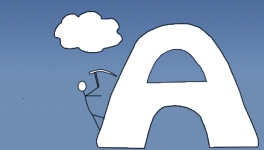« Education: An Inferior Good? | Main | Has the Internet Made Advertising Obsolete? »
It’s Not Always a Mask
By Chris | March 26, 2009
When Facebook came out, I was intrigued by how people presented themselves. Initially, membership was confined to university students. When crafting a profile, students knew their audience well. Pictures from last night’s party were okay. Divulging your secret love of Hanson was not. In the real world, people act differently around different groups of friends. To compensate for this, Facebook profiles were made a little less polarizing. Many people neglected to list their political affiliation. But, it wasn’t too hard to present an image of yourself that all of your college friends could identify with. As Facebook opened up, the audience exploded. Your relatives, pastors, teachers, employers, and even parents added you to their network. I’m friends with my cousin’s newborn son. Today, your Facebook profile has to be consistent with the you that all of these different people have come to know. That can be a challenge.
Isn’t this a good thing. Don’t we want to discourage people from being two-faced? Ben Casnocha thinks that social mediums like Facebook and blogs require you to show your true self:
In other words, technology is collapsing the masks we wear, making it harder to project different versions of our identity depending on the audience.
My theory: The most natural “you” is the version that gets presented when masks collapse. For example, host a dinner party with your mom, best friend from school, your boss from work, and a woman/man you’re interested in dating. How do you act? What comes most naturally?
Thus, the “you” that emerges on a personal blog represents a regression-to-the-mean synthesis, which may represent the most natural version of yourself.
While I think it is generally good to be transparent about who you are and what you stand for, I don’t agree that the synthesis of yourself is the most natural version of yourself. People relate differently with one another because people connect on different levels. It’s not always a mask. Variance in personality is not always caused by distortions from one’s “real” self. Rather, different people bring out different aspects of your personality. In C.S. Lewis’ book “The Four Loves” (I think) he notes that a group of three friends is more than the sum of its parts. Friend B not only brings out something unique in myself, he also fundamentally changes the relationship I have with Friend A. The loss of Friend B, destroys part of the dynamic I have with Friend A.
I have always been poor at the subject, but an analogy from chemistry seems to fit. People are like periodic elements and groups of friends are like compounds. What is the “true” oxygen? Is it being itself when it is bonding with Hydrogen to form water? Or is it being its true self when it gets together with itself and Carbon to form CO2? It would be silly to say that oxygen is the most itself when it with both Hydrogen and Carbon. It isn’t natural to interact with everyone you know at once.
As far as the internet goes, it means that social networks can only get so big before they lose their value. Facebook and Twitter won’t monopolize the sector. There is a need for niche social networks and semi-anonymous blogs (like this one). It’s nice to write without tailoring my words to avoid offending certain friends, acquaintances, and future employers. Personal communication like email will not be replaced by wall posts, blog comments, and other forms of public communication.
The internet has made information ubiquitous. It is almost impossible to connect with people on the internet under your true identity and lead separate contradictory lives. That is a good thing. And yet, human relationships require privacy and intimacy that will never be replaced by interaction in a public forum. Thankfully, your true self can’t be decomposed to a “regression-to-the-mean synthesis”. Personality has too many dimensions that new relationships will always continue to reveal.
Topics: Behavioral Economics, Economics, Internet, Psychology, Web 2.0 | 2 Comments »



April 7th, 2009 at 10:33 pm
Thanks Chris. But aren’t people their true selves when they are relating with others the way they were intended? If so, that is to relate to the One that created us, loving Him with all we got, and then loving each other like we love ourselves-in that order. Anything else, electronic or otherwise, leaves something missing-an empty place, that is unnatural.
June 28th, 2015 at 7:13 pm
I was suggested this website by my cousin. I’m not sure
whether this publish is written through him as nobody else recognise such particular approximately my
problem. You’re amazing! Thanks!